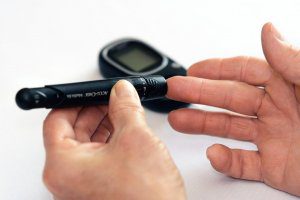Working Out on an Empty Stomach vs. Full Stomach.
Whether you are looking to lose weight or get in the best shape of your life, you may be wondering if it is best to work out on an empty stomach or a full stomach.
There are a number of conflicting theories out there that may suggest why you should choose to do one thing over another.
If you are already working hard in the gym, you may be looking for a way to accelerate your progress so that you see the results faster. As you may be aware, when you eat, how much you eat and what you eat will affect your progress in the gym.
Some theories suggest working out on an empty stomach will burn more fat. At the same time, others suggest that you need to fuel your body before a workout so that you can have the energy to perform your best.
Let’s take a closer look at the benefits and drawbacks of working out on an empty stomach and a full stomach. After that, we will be able to determine which will lead to better results.
Working out on an EMPTY stomach.
As you may have already heard, some people believe that if you exercise on an empty stomach, you will burn more fat and will, therefore, see results faster.
Pros to exercise on empty stomach.
When you are fasting, your body does whatever needs to be done to get the necessary sugar to fuel your muscles and brain (Kormos, 2017).

If you are exercising on an empty stomach, your body will need to use either stored fat or protein from your muscles as fuel.
This is precisely why people believe that you will be able to burn more fat if you workout on an empty stomach.
Some research suggests that fasted cardio will force your body to use stored fat as energy (Kormos, 2017). In addition to forcing your body to use stored fat as fuel, working out on an empty stomach will help your body use insulin more efficiently (Kormos, 2017).
With that in mind, you should be able to lose weight faster as well as reduce your overall energy intake for the day as a result of fasted exercise (Bachman, Deitrick, & Hillman, 2016).
Are there any drawbacks to workouts on an empty stomach?
While the aforementioned benefits sound fantastic, it is important to consider the drawbacks of working out on an empty stomach.
First, if you are not used to fasting exercise, your workout will feel extremely difficult and you will feel hungry the entire time. Furthermore, you may also be more likely to get stomach cramps. Not only that, but you may also feel dizzy and lightheaded if you workout on an empty stomach.
 You may also end up suffering from extremely low blood sugar. If your blood sugar is extremely low, you may even pass out during your workout.
You may also end up suffering from extremely low blood sugar. If your blood sugar is extremely low, you may even pass out during your workout.
Another potential drawback is that there is a chance that your body will break down your muscle tissue as opposed to fat.
Therefore, you will not be able to build as much muscle and your muscle mass may even decrease from too many fasted workouts. The less muscle you have, the lower your basal metabolic rate becomes, making it more difficult to burn calories. If your basal metabolic rate is too low, you will be more likely to store fat.
Working out on a FULL stomach.
If you eat before you work out, you may find yourself with more energy to get through the workout.
 Therefore, in theory, you should be able to work out harder if you have the energy. As you may already know, the harder you work out, the better your results will be.
Therefore, in theory, you should be able to work out harder if you have the energy. As you may already know, the harder you work out, the better your results will be.
Are there any drawbacks to workouts on a full stomach?
However, one big drawback to working out on a full stomach, particularly if you eat too much before you exercise, is that you may find yourself feeling nauseous during your workout.

Depending on what you ate and how much you ate, as well as how intense your workout session is, you may even throw up.
This is especially true if you are doing exercises such as sprints and burpees on a very full stomach immediately after eating.
Sometimes, when you work out on a full stomach, you may get a side stitch, which is both painful and uncomfortable (What causes a side stitch when you workout? n. d.).
Some people, unfortunately, also experience exercise-induced anaphylaxis when they workout on a full stomach, particularly if they consume foods that trigger an allergic response to exercise (Exercise-induced anaphylaxis, n. d.). Additionally, if your stomach is too full, you may feel heavier during your workout.
To sum it all up.
Now that you know the benefits of working out on an empty stomach or a full stomach, you should be able to decide what is best for you.
As you can see, if you exercise on an empty stomach, you may not have the energy to get through your exercise session and you may feel faint and dizzy. Not only that, but your body may use muscle as a source of fuel as opposed to the stubborn stored fat that you are trying to get rid of.
At the same time, there are studies that suggest your body will use stored fat as fuel for your workout if you don’t eat before exercise. However, if you work out on a full stomach, you may get nauseous and even throw up.
Additionally, you may get stomach cramps and feel uncomfortable during your workout if you eat too much beforehand. However, if your stomach is not completely empty before your workout, you will most likely find yourself with more energy to work harder during your session.
Is there any balance between empty and a full stomach? Here is our recommendation for you!
Based on the aforementioned benefits and drawbacks of working out on an empty stomach or a full stomach, there appears to be a happy medium.
 Therefore, the key is to fuel your body properly before your workout. This means that you must eat the right foods without overeating. The right foods will be different for each person because we are all different.
Therefore, the key is to fuel your body properly before your workout. This means that you must eat the right foods without overeating. The right foods will be different for each person because we are all different.
If you are worried about fainting during your workout, then you should have a small, nutritious snack before working out, such as a banana. You must also give yourself some time to digest the food if you are going to eat before exercising. You definitely should not eat a huge meal before your workout or you put yourself at risk of throwing up.
Therefore, you should listen to your body to determine if you can work out on an empty stomach or if you need to eat a small healthy snack before you exercise. As long as you get your workouts done and avoid overeating, you should see progress.
REFERENCES:
- Bachman, J. L., Deitrick, R. W., & Hillman, A. R. (2016). Exercising in the Fasted State Reduced 24-Hour Energy Intake in Active Male Adults. Journal of nutrition and metabolism, 2016, 1984198.
- Kormos, W. (2017). Are there any benefits to exercising on an empty stomach? Harvard Health Publishing.
- The University of Texas at Austin (n. d.). “What causes a side stitch when you workout?”
- University of Rochester Medical Center (n. d.). “Exercise-induced anaphylaxis (EIA).”


